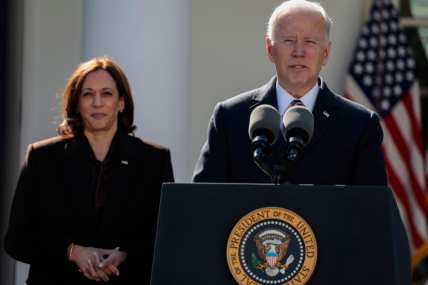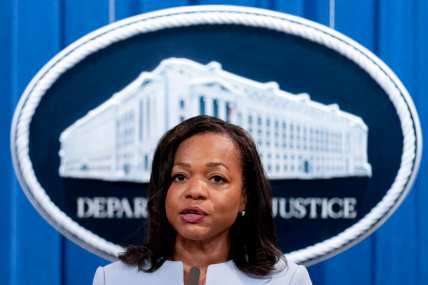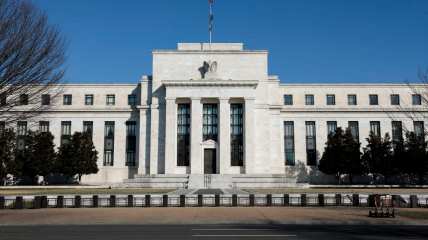As Black unemployment slightly climbs, Biden administration projects economic confidence
TheGrio chatted with U.S. Rep. Ilhan Omar (D-Minn.) and Biden senior advisor Gene Sperling about the latest job report from the U.S. Bureau of Labor Statistics.
The national unemployment rate in May held steady at 3.6 percent for two straight months, the U.S. Bureau of Labor Statistics announced last Friday. However, the unemployment rate for Black Americans slightly spiked in May to 6.2 percent, up from 5.9 percent in April.
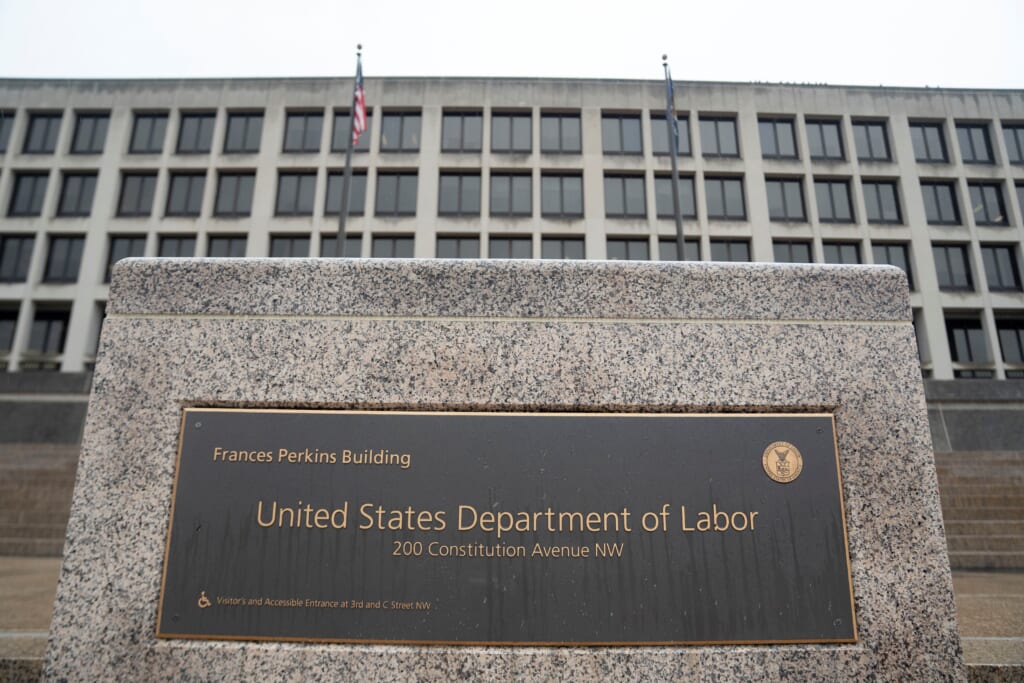
The Black unemployment numbers have historically been higher than other racial or ethnic groups. A glimpse of this fact was magnified in a Labor Department report in 2020 that showed the disproportionate impact of COVID-19 on Black and minority communities.
On average, the unemployment rate for Black Americans was 11.6 percent in 2020, higher than the rates for whites (7.3 percent), Hispanics or Latinos (10.4 percent) and Asians (8.7 percent). Prior to the COVID-19 shutdown in the United States, the Black jobless rate in February 2020 was 5.8 percent – one of its lowest in history. The national unemployment rate averaged 8.1 percent.
As the Labor Department report noted, the disproportionate unemployment rates for Blacks were due to an “overrepresentation in some of the hardest-hit sectors of the economy.”
While the Black unemployment rate is much lower than it was at the height of the pandemic, the latest Black labor statistics remain slightly higher than where it was before COVID-19.
U.S. Rep. Ilhan Omar, who represents Minnesota’s 5th Congressional District, acknowledged the stark reality for Black communities when it comes to access to jobs.
“There’s a lot to celebrate about the job numbers. But…it is not a reflection of growth for all of our communities,” Omar told theGrio. “The kind of gaps that exist for the African-American community is very much different than other communities.”
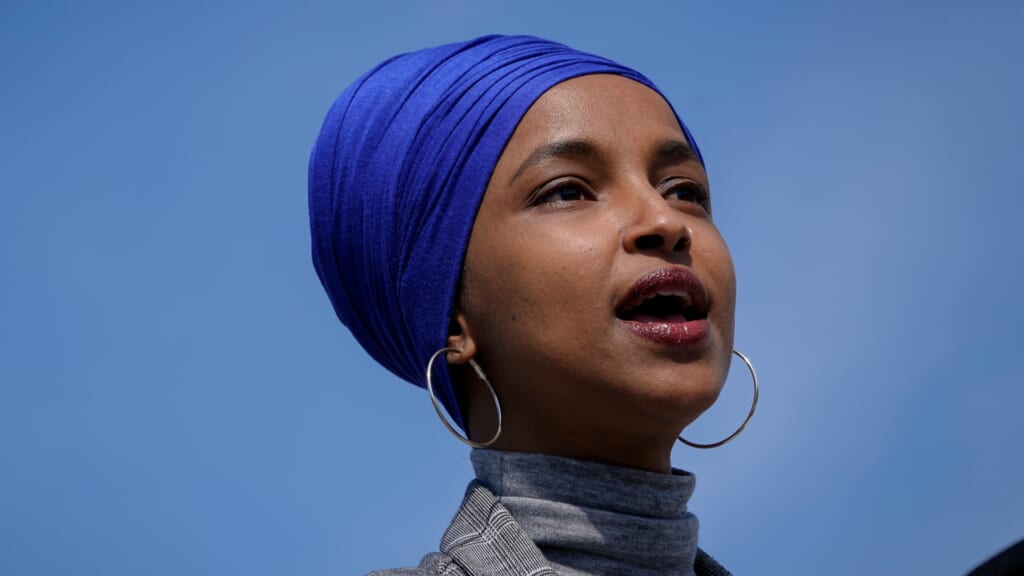
Broader negative economic issues that impact a majority of Americans are often disproportionately felt by Black communities. Congresswoman Omar said this is where an equity lens is crucial when legislating economic policy.
“We know that broadband accessibility for African Americans is not the same as the rest of the country. That impacts whether, during COVID, you’re able to sustain a job working from home,” said Omar. “We know that a lot of the frontline workers that we are so thankful for tend to be African Americans. And so we know it’s hard for a lot of people to get back to work.
Omar, a member of the progressive faction in the U.S. House of Representatives known as “The Squad,” added, “We just have to be thoughtful in the way that we approach [it]. I think oftentimes politics gets in the way [and] there are problems that you’re seeing and oftentimes they don’t get addressed.”
While the Black unemployment rate may be much higher than the national rate, the White House coordinator for the American Rescue Plan and senior adviser to President Joe Biden, Gene Sperling, touted the jobs recovery for Black Americans since the pandemic.
In an interview with theGrio, Sperling pointed to the rapid growth in job creation during the Biden administration, which is the most jobs created by any president in their first year.
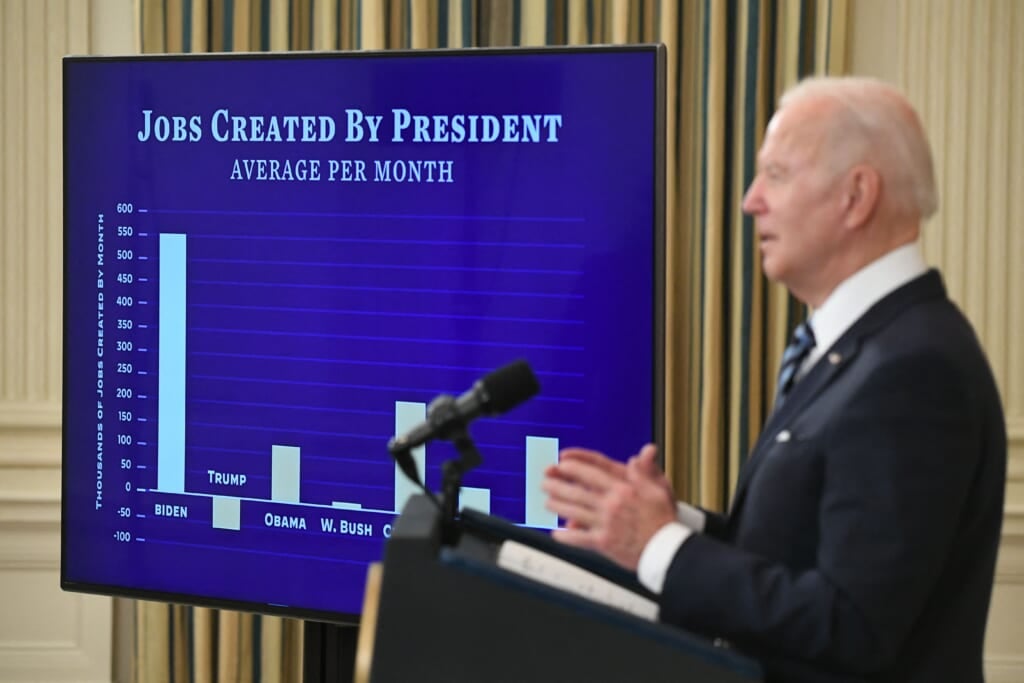
The economic policy veteran noted that Biden served as vice president to President Barack Obama during the Great Recession and its subsequent recovery efforts. The Obama administration, Sperling recalled, was “blocked repeatedly” by Republicans in Congress when Democrats sought to get additional funding for the recovery.
“A lot of people were stuck on long-term unemployment. We saw Black and Hispanic unemployment take six years to fully recover,” Sperling told theGrio. It’s because of that not-so distant-history, he said, that President Biden “wanted an American Rescue Plan that was going to lift [up] everyone.”
Sperling also highlighted that Black and Hispanic entrepreneurship, those who created new businesses, is up 20 percent. He noted that it was “higher than it was before the pandemic.” During the COVID-19 pandemic, as much as 40 percent of Black businesses shuttered their doors during the economic downturn.
In the midst of inflation, including rising gasoline and food prices, Sperling sees a bit of a silver lining in the midst of a bleak situation. While he acknowledged that the United States has not “escaped the negatives of global inflation,” Sperling cited reports from the Federal Reserve that showed that American families, white and minority alike, “have more savings, are in better financial situation [and] more are working.”
He added, “I think it should give us some hope that we have resilience, that we’ll get to a transition to more stable growth than any other country in the world is positioned to do right now.”
TheGrio is FREE on your TV via Apple TV, Amazon Fire, Roku, and Android TV. Please download theGrio mobile apps today!
More About:Politics
